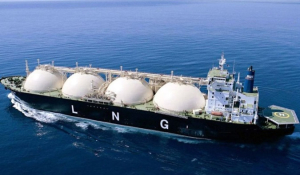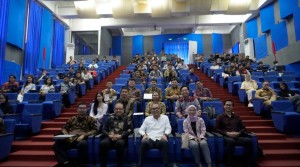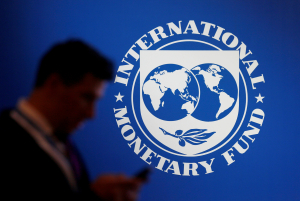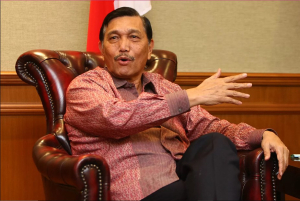Government forms Indonesian Carbon Capture and Storage Center (ICCSC) to drive carbon capture technology implementation storage
Indonesia aims to become a regional hub for carbon capture and storage (CCS) with the launch of the Indonesia Carbon Capture and Storage Center (ICCSC). The ICCSC is a new organization that develops innovative solutions for CCS development, energy transition acceleration, and optimal climate development.
Becoming a regional hub
Coordinating Minister for Maritime Affairs and Investment, Luhut Binsar Pandjaitan, stated that the ICCSC is a new organization focused on developing CCS solutions and accelerating energy transition. Luhut also underlined the government's commitment to promoting innovation and cooperation in carbon capture and storage implementation.
"This is to achieve our larger goal of making Indonesia a CCS Hub in the region," Luhut said, on May 30, 2023.
Minister Luhut also stated that the government will continue to encourage innovation, investment, and cooperation in CCS implementation to enhance its effectiveness and growth in Indonesia. He mentioned that CCS will be a new pathway for low-carbon business development in the future, including hydrogen, blue and green ammonia, as well as blue and green methanol.
Luhut outlined several challenges in CCS development and implementation that require collaboration from all stakeholders, including regulatory and policy frameworks, infrastructure and technology, finance and funding, as well as public awareness and support.
"To address this, the initiation and organization of the International and Indonesia CCS Forum 2023 are expected to achieve the aforementioned goals as a gathering place and catalyst for CCS implementation. I hope all organizers remain enthusiastic and highly committed in preparing for the IICS Forum 2023 activities," he stated.
Potential for business and opportunities
Luhut mentioned that Indonesia has significant potential in CO2 storage capacity. Based on several studies, Indonesia's capacity for CCS technology implementation could reach 400 Gt. This presents substantial business and investment opportunities for Indonesia, while also playing an important role in carbon emissions reduction through CCS.
Belladonna Maulianda, Executive Director of ICCSC, explained that CCS technology is one of the primary solutions for reducing carbon dioxide (CO2) emissions and serves as an investment source for low-carbon businesses in the future.
Previously, Mirza Mahendra, the Director of Technical and Environmental Affairs for Oil and Gas at the Ministry of Energy and Mineral Resources, stated that there are currently 16 carbon capture projects, including CCS and carbon capture, utilization, and storage (CCUS), scheduled to operate before 2030.
"The most significant one is the Tangguh BP Berau CCUS project, which has obtained the Plan of Development approval. Additionally, there is also the Huff and Puff CO2 Injection Pilot Test by Pertamina in the Jatibarang Field, which is still at a well-scale pilot, but the results are very promising," he said, on February 9, 2023.
"By adopting Indonesia as a regional CCS Hub, it is expected to create new job opportunities, increase investment, and stimulate economic growth at the local, regional, and global levels," adds Maulianda.
Challenges in implementation
One of the challenges in the implementation of CCS technology includes relatively high cost, especially for CO2 capture. Therefore, efforts are needed to drive the economic viability of implementation, including technology development, cost-sharing collaborations, incentives, and developing Indonesia as a CCS Hub that connects various CO2 sources to injection sites across the country.
Tag
Already have an account? Sign In
-
Start reading
Freemium
-
Monthly Subscription
20% OFF$29.75
$37.19/MonthCancel anytime
This offer is open to all new subscribers!
Subscribe now -
Yearly Subscription
33% OFF$228.13
$340.5/YearCancel anytime
This offer is open to all new subscribers!
Subscribe now







